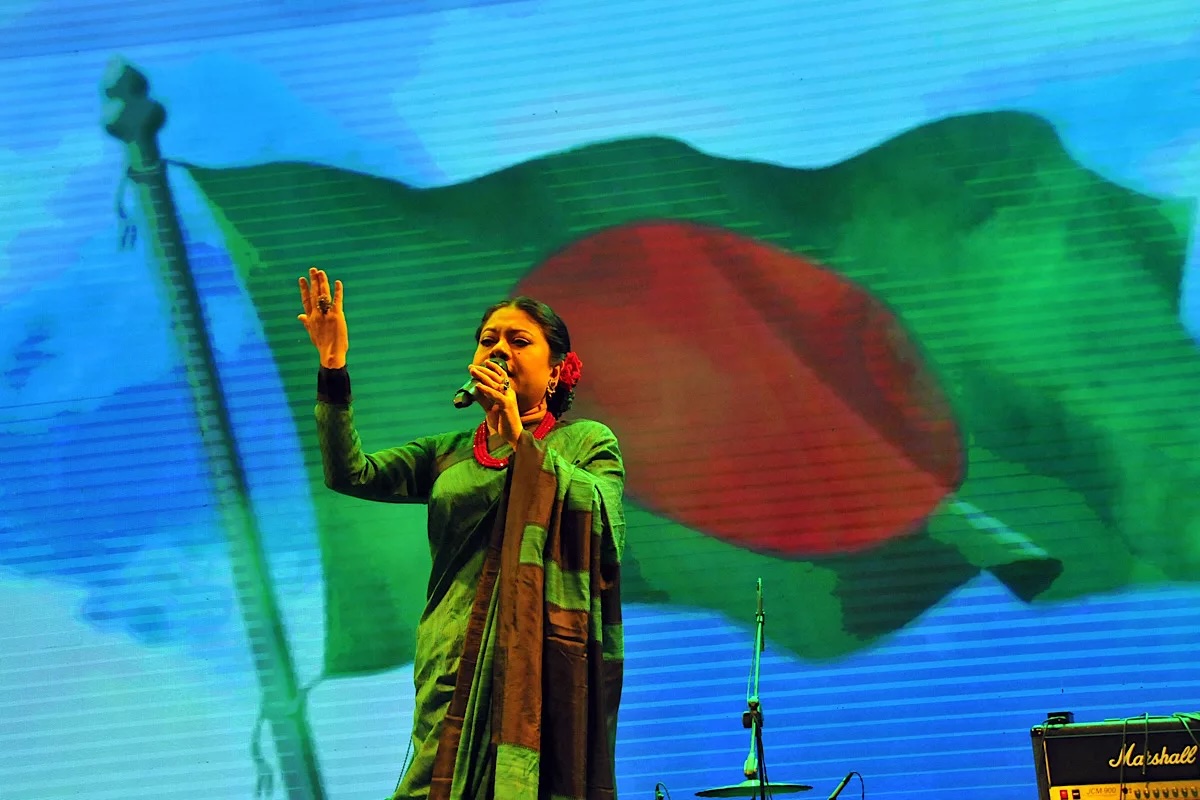
Rising Instability Threatens Hard-Fought Freedom » Capital News
March 27 – Fifty-four years ago, Pakistan’s President, General Yahya Khan, arrived in Dhaka for a series of meetings with Sheikh Mujibur Rahman between March 16 and 24. However, these discussions failed to yield a resolution and, in hindsight, appeared to be a strategic delay while the Pakistani military prepared a brutal crackdown to crush the aspirations of the Bengali people.
At midnight on March 25, the Pakistan Army, along with local collaborators, launched a campaign of genocide and mass rape against civilians in East Pakistan under ‘Operation Searchlight.’ Thousands were massacred in the initial days, and in the early hours of March 26, Sheikh Mujibur Rahman proclaimed Bangladesh’s independence. He was swiftly arrested and transported to Karachi, where he remained in captivity throughout the war. The operation, orchestrated by West Pakistani generals, aimed to eliminate the Awami League leadership, influential civilians, and armed forces personnel supporting the liberation movement. Ruthless tactics—including widespread killings, arson, and sexual violence—were authorised to achieve this goal.
After a gruesome nine-month war, Bangladesh achieved independence at an immense cost, with hundreds of thousands—men, women, and children—paying the ultimate price in blood. The country’s liberation was a phenomenal achievement in South Asian history.
A Nation in Crisis
Today, however, Bangladesh finds itself at a critical juncture. The legacy of its hard-fought independence is under threat, as the security situation deteriorates. Crimes such as theft, robbery, and sexual violence are rising alarmingly, particularly in Dhaka. Armed criminals, including escaped convicts, are operating with impunity, and reports of sexual assaults in public transport have sparked widespread outrage. Women and children are increasingly becoming victims of brutal crimes, including rape and murder, with perpetrators seeking to eliminate all traces of their atrocities.
A worrying trend has emerged, with many victims belonging to minority communities. Forced religious conversions, land seizures, and extrajudicial extortion have surged, fuelling an atmosphere of fear and oppression. Women’s rights groups have taken to the streets of Dhaka, demanding justice after the barbaric rape and murder of a minor child, underscoring the volatile situation. Women’s safety and freedom—core principles of Bengali society—were non-negotiable in 1971, and they remain so today.
Even the country’s security infrastructure has come under attack, as seen in the recent assault on the Cox’s Bazar Air Force base. The law and order situation has worsened exponentially under the interim government led by Muhammad Yunus, and the nation is on the brink of collapse.
Rising Public Unrest and the Threat of Extremism
Frustrated by deteriorating security, ordinary citizens are taking to the streets, further straining the already fragile relationship between the government and the people. The growing distrust between the state and its citizens is deepening divisions, with convicted criminals and members of proscribed terror organisations roaming freely, creating a climate of fear. Calls for the establishment of a new ‘Caliphate’ are gaining traction, raising alarm over the resurgence of extremist ideologies.
The security situation on the Dhaka-Chittagong highway, Bangladesh’s economic lifeline, has deteriorated drastically. Once a critical trade route, it has now become a hotspot for violent crime, with expatriates, businesspersons, and garment workers being robbed at gunpoint. The escalating lawlessness is symptomatic of a deeper crisis that threatens to destabilise the entire country.
The Urgent Need for Reform
The caretaker government must take immediate action to restore order. This requires police reform, accountability for state violence, and an uncompromising crackdown on terrorist networks. The forces defeated in 1971 are attempting to avenge their loss, seeking to transform Bangladesh into a monolithic state at the expense of its pluralistic and diverse identity.
Bangladesh was once hailed as an economic success story, making remarkable progress in global development indicators. However, the current state of turmoil threatens to reverse decades of growth, with consequences extending beyond its borders. The risk of Bangladesh slipping into chaos is too great to ignore—not only for its citizens but for the wider region and the global community.
The nation now stands at a crossroads: it must either uphold the values of its hard-won independence or risk descending into instability and regression. The time for decisive action is now.